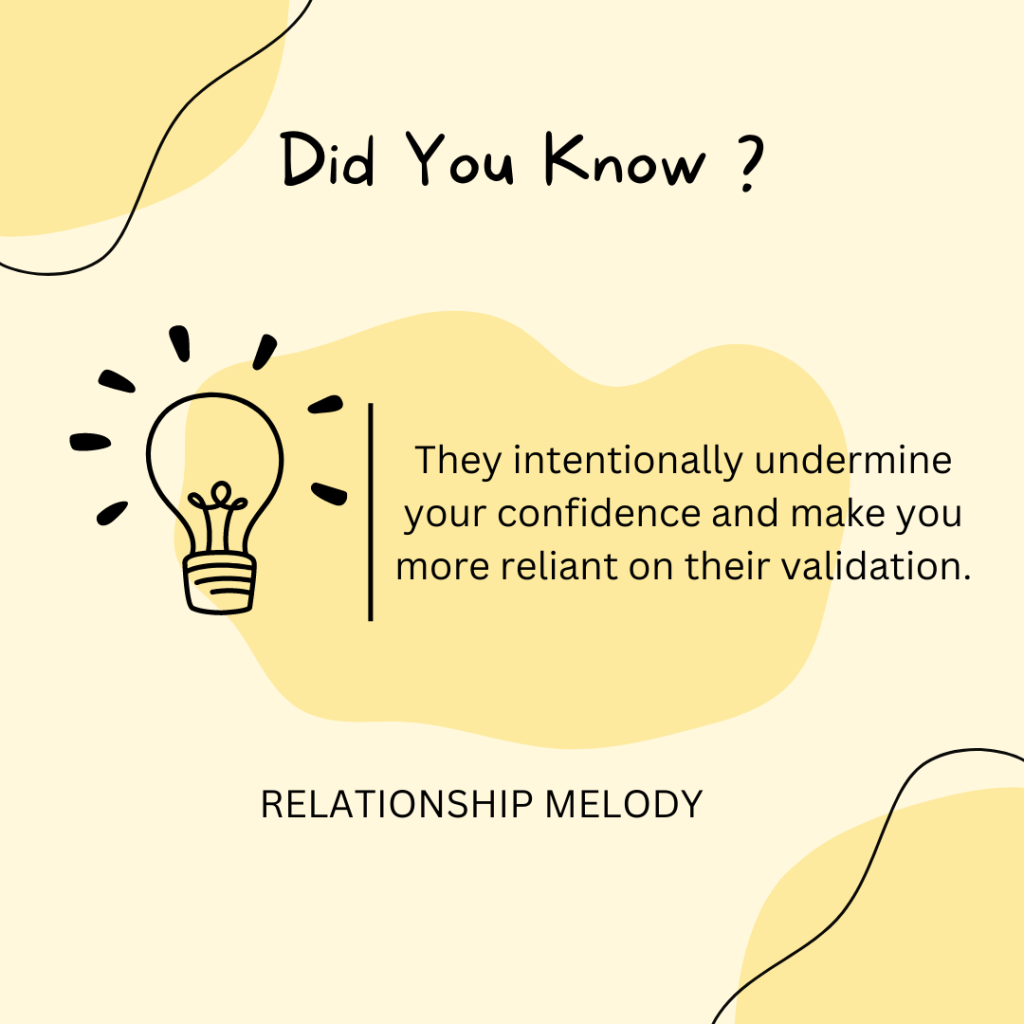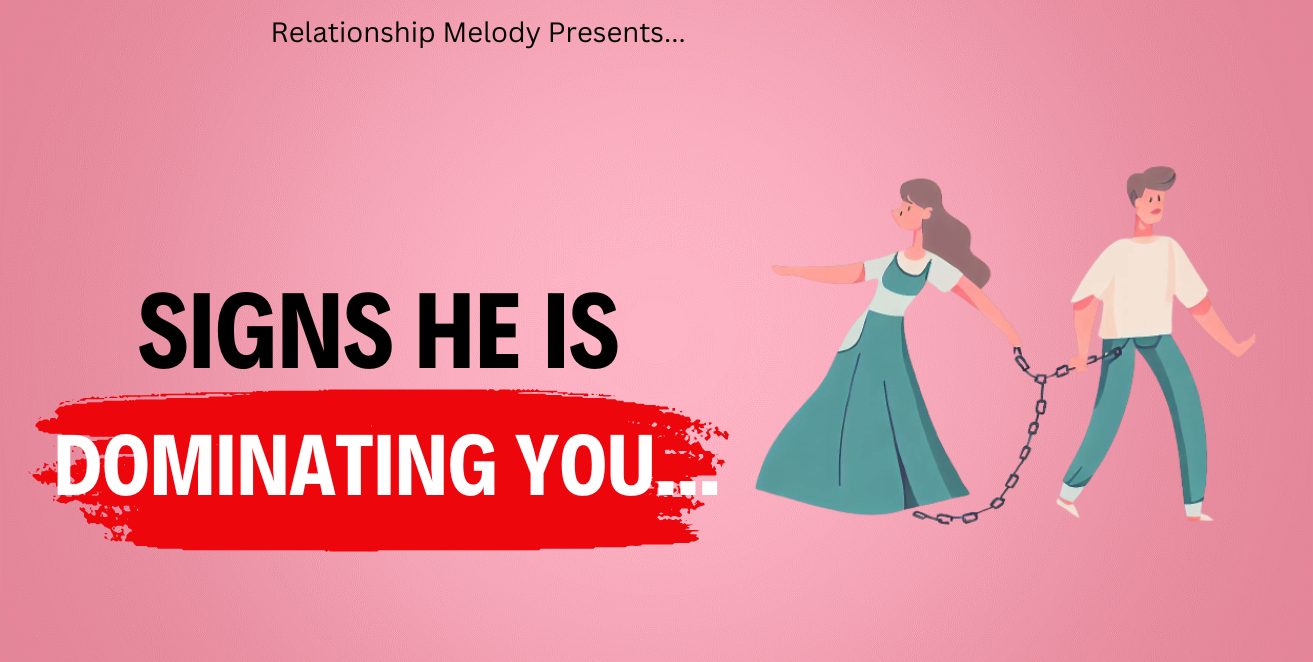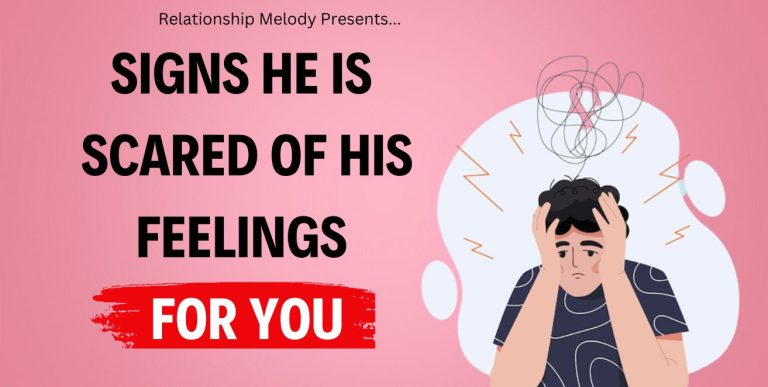25 Signs He Is Dominating You
In any relationship, a healthy balance of power, respect, and autonomy is essential for both individuals to thrive. However, sometimes subtle signs of dominance can begin to surface, indicating an unhealthy dynamic where one partner holds an excessive amount of control over the other.
Recognizing these signs is crucial for maintaining personal boundaries and fostering a healthy relationship. In this blog post, we will explore 25 signs that may indicate your partner is dominating you. It is important to remember that every relationship is unique, and these signs should be considered in context.
Let’s delve into the details to help you identify and address any red flags that may be present.
#1 Constant Criticism:
When your partner consistently criticizes you, dismissing your thoughts, feelings, and actions, it undermines your self-esteem and autonomy. They aim to assert control over you, eroding your confidence and making you more reliant on their approval.
#2 Isolation:
If your partner isolates you from your support system, such as friends and family, it becomes easier for them to exert dominance over you. By controlling your social interactions and monopolizing your time, they limit your access to alternative perspectives and support networks.
#3 Controlling Finances:
Taking control of your finances or limiting your access to money is a form of dominance. It makes you dependent on them for financial decisions, leaving you vulnerable and reliant on their approval for your basic needs.
#4 Making Decisions Without Consultation:
When your partner consistently makes decisions without consulting you or considering your opinions and preferences, they disregard your autonomy and treat your input as insignificant. This behaviour reinforces their belief in their superior position and diminishes their sense of agency.
#5 Emotional Manipulation:
Emotional manipulation involves tactics such as guilt-tripping, gaslighting, and manipulating your emotions to control your thoughts, actions, and reactions. By distorting your perception of reality, they undermine your self-trust and manipulate you to conform to their desires.
#6 Monitoring Communication:
Excessive monitoring of your calls, messages, and social media accounts without a legitimate reason indicates a lack of trust and a desire to control your interactions. It invades your privacy and further reinforces their dominance over you.
#7 Exerting Physical Force:
Any form of physical force, whether it’s grabbing, pushing, or restraining you, is a clear sign of dominance and abusive behavior. Physical aggression is an extreme manifestation of control that can escalate and cause serious harm.
#8 Jealousy and Possessiveness:
Extreme jealousy and possessiveness, coupled with accusations and attempts to control your interactions with others, are signs of unhealthy dominance. They stem from insecurities and a desire to limit your autonomy and isolate you from potential threats to their control.

#9 Constant Surveillance:
If your partner keeps a constant watch over your activities, whereabouts, and online presence, it demonstrates a desire to control and dominate your every move. It creates a sense of constant scrutiny and fosters a climate of fear and subordination.
#10 Ignoring or Dismissing Boundaries:
When your established boundaries are consistently ignored or dismissed, it indicates a lack of respect for your autonomy and personal limits. They may intentionally cross these boundaries to test and reinforce their dominance over you.
#11 Double Standards:
Applying different standards of behaviour for themselves compared to you reveals an imbalanced power dynamic. They may hold you to unrealistic expectations while excusing their actions, further solidifying their dominance.
#12 Excessive Demands:
If your partner places excessive demands on your time, attention, and energy while disregarding your own needs and boundaries, it demonstrates a desire for control. By overwhelming you with their expectations, they manipulate you into prioritizing their needs above your own.
#13 Dictating Your Appearance:
Controlling your clothing choices, hairstyle, or physical appearance is a means of moulding you into their ideal image. It diminishes your autonomy and reinforces their dominance by dictating how you should present yourself to the world.
#14 Making Important Life Decisions Unilaterally:
When significant life decisions, such as moving, changing jobs, or starting a family, are made without your input or consent, it shows a disregard for your autonomy and equality within the relationship. They view themselves as the sole decision-maker, further establishing their dominance.
#15 Emotional Withdrawal:
Withholding affection, giving the silent treatment, or emotionally distancing themselves from you is a manipulative tactic to control your behaviour. By making you fear the loss of their affection, they exert dominance and coerce you into conforming to their desires.
#16 Intimidation and Threats:
Using intimidation or making threats, whether overt or veiled, to maintain control and dominance is a serious red flag. It creates an atmosphere of fear and subservience, eroding your sense of safety and autonomy within the relationship.
#17 Constant Monitoring of Activities:
Frequently monitoring your activities, questioning your motives, or insisting on constant updates indicates a desire for control. It leaves little room for privacy and autonomy, fostering a sense of constant surveillance and manipulation.
#18 Discounting Your Achievements:
Minimizing or downplaying your accomplishments and contributions belittles your self-worth and reinforces the power imbalance. They intentionally undermine your confidence and make you more reliant on their validation.
#19 Forced Isolation:
Deliberately isolating you from supportive friends, family, or community networks weakens your social support system. By limiting your access to external perspectives and sources of validation, they increase their control over you.
#20 Imposing Ultimatums:
Using ultimatums as a means to control your actions or manipulate your decisions is a tactic to assert dominance. It creates a sense of fear and forces you to comply with their desires, disregarding your autonomy and preferences.
#21 Emotional and Verbal Abuse:
Engaging in emotional or verbal abuse, such as insults, name-calling, or humiliation, is a clear sign of dominance. It erodes your self-esteem, reinforces their power over you, and can have long-lasting negative effects on your mental and emotional well-being.
#22 Undermining Your Confidence:
Consistently undermining your self-confidence and self-esteem is a tactic used to make you more dependent on your partner. By diminishing your sense of self-worth, they reinforce their dominance and control over you.
#23 Dominating Sexual Interactions:
Using coercive or manipulative tactics during intimate moments, disregarding your consent or preferences, is a clear sign of unhealthy dominance. It violates your boundaries, erodes your autonomy, and can lead to long-lasting emotional and psychological harm.
#24 Creating Dependency:
Actively discouraging your independence, skills, or achievements is a tactic to foster a sense of dependency on your partner. By undermining your abilities, they reinforce their control over you and diminish your confidence in pursuing your own goals.
#25 Ignoring Your Needs:
Consistently ignoring or disregarding your emotional, physical, or psychological needs demonstrates a lack of empathy and a desire for dominance. It leaves you feeling unseen and unheard, further solidifying their power over you.
Read More: Signs he is double dating
Conclusion:
Recognizing these signs of dominance in a relationship is crucial for maintaining your well-being and fostering a healthy dynamic. It is essential to address these red flags openly and honestly with your partner and seek support from trusted friends, family, or professionals.
Remember, you deserve to be in a relationship where your voice is heard, your boundaries are respected, and your autonomy is valued.
Liked Our Article? Feel Free To Support Us
Our Patreon link: https://www.patreon.com/RelationshipMelody

Welcome to Relationship Melody! Our website is dedicated to all things on relationships, dating, and love! We are passionate about helping you navigate the ups and downs of love, and our goal is to provide you with valuable insights and information that will make your journey toward a fulfilling relationship smoother and more enjoyable.







